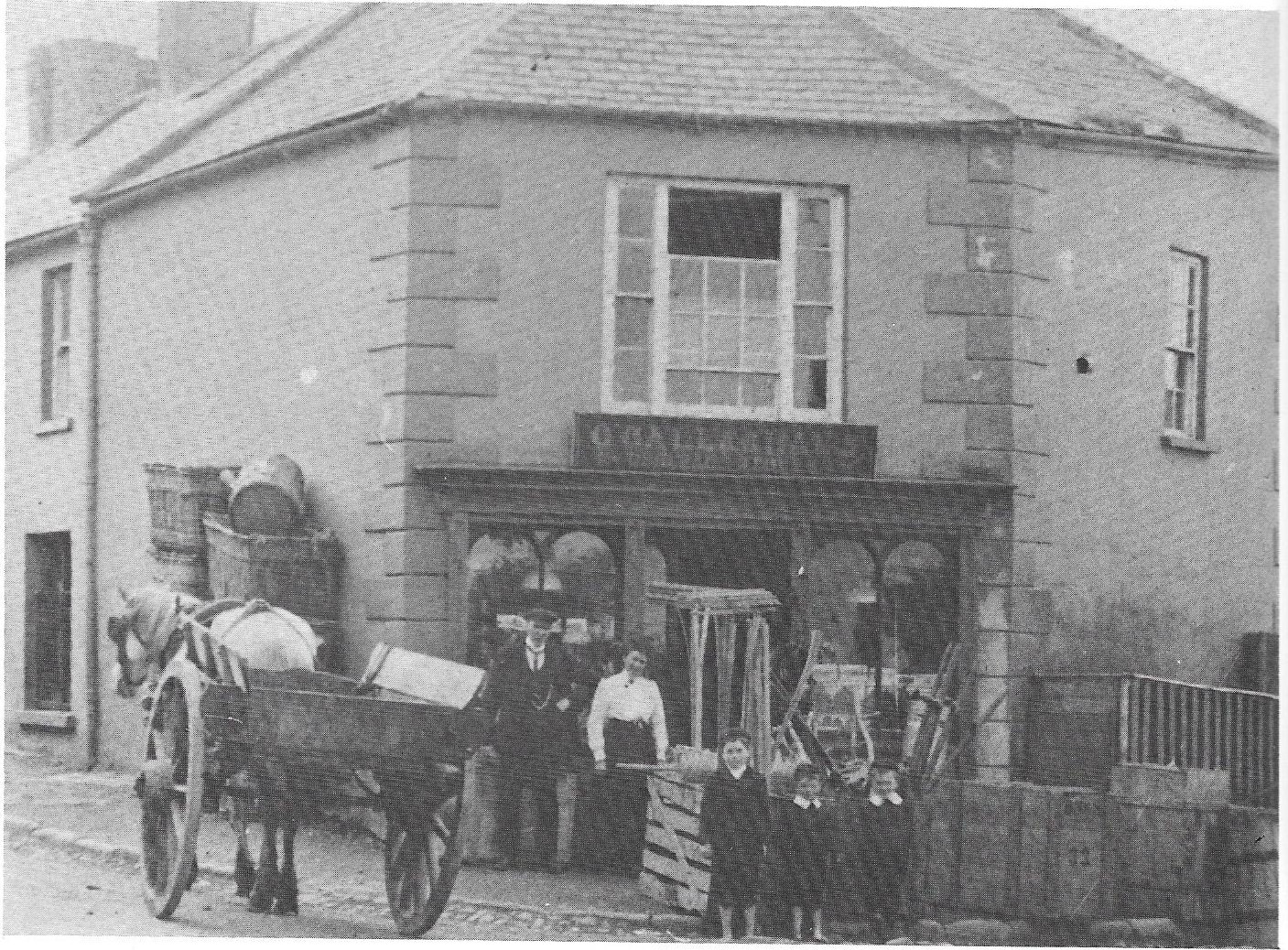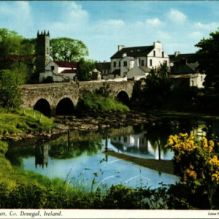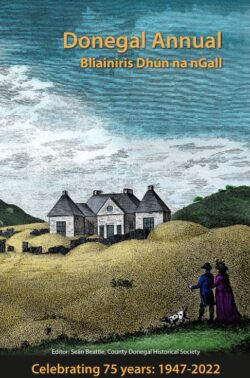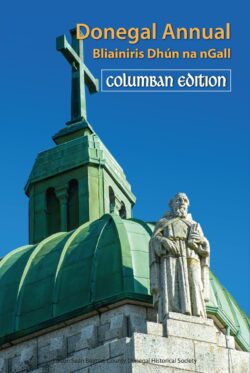Historians in the north west will be pleased to learn that the Irish Library in Magee College, Derry will soon be open for public consultation. The great library at Magee, built up since 1865, was plundered when the New University of Ulster was established at Coleraine and the books were transferred there. Over 6,000 were retained in a store off the main library in Magee College and only the privileged few – including myself when I completed my Ph.D. – got access. All the books have now been catalogued and the public can request a book for research. This facility is not fully operation but will be available later in the year.
At a function in Magee this week, I was given a tour of the enlarged library and it was exciting to see the superb range of newspapers, books, records and letters available. On display was an original copy of THE LONDONDERRY STANDARD of 13 May 1863. There are several editions of Derry papers from the early 1800s – so much more interesting than on microfilm. Two items caught my attention. One was a public notice to announce that the House of Lords in London had given the assent to pass the Bill establishing the Lough Swilly Railway, which ceased trading last week after 151 years. The great Derry businessmen had held a meeting later to discuss the Bill, including Cookes, McCorkells.and Alexanders. For the two former, the new railway was destined to give a major boost to their shipping business and special fares would be introduced for passengers going to America and for the hiring fairs. It is probably true to say that the railway facilitated emigration and eased the hardship associated with it. Sadly, no train lines operate in the county today apart from a tourist line at Fintown. The old carriages and engines from the Donegal Railways can still be seen in the Railway Museum at Craigavon Bridge and this place is worth a visit. It had been closed for a number of years but Derry City Council have offices there pending the construction of a new museum at Ebrington. If you travel by bus or car over the bridge, the last of the old red Donegal Railway steam engines can be seen below.
The second item was the sale of a corn mill at Carndonagh, a reminder of the thriving state of our agricultural economy in the post-Famine era. There were at least three major mills operating near the town and business was brisk especially in the Autumn and during the “meal months” of June, July and August when oatmeal replaced the potato in most Donegal households at dinner time as families waited for the new crop of potatoes. Donegal had a very high consumption of oatmeal compared to other counties, probably as it was a great grain-growing county and the food was cheap and nutritious. Harry Swan’s family made a fortune as a result. It was a tradition in many households in my lifetime to keep a pot of porridge close to the fire at all times. Porridge was also eaten as supper. The mill was offered on a 61 year lease by J. Dougherty (note unusual spelling). It was a large operation with 3 pairs of mill stones, an elevator and a sifter. A dwelling house was included in the lease. It is likely that up to 20 men would be employed at peak times in this mill alone in order to keep the three mill stones in operation. Children were also kept busy and there were many accidents. Some of the mill stones were over a metre high. Another casualty of changes in work patterns, diet and lifestyle in this community. Colgan Heritage Committee plan to signpost the location of all such operations particularly corm mills, water wheels and sawmills near the town. Any family having information can contact this site. (The Londonderry Standard, 13 May 1863 – Sean Beattie)








Leave a Reply